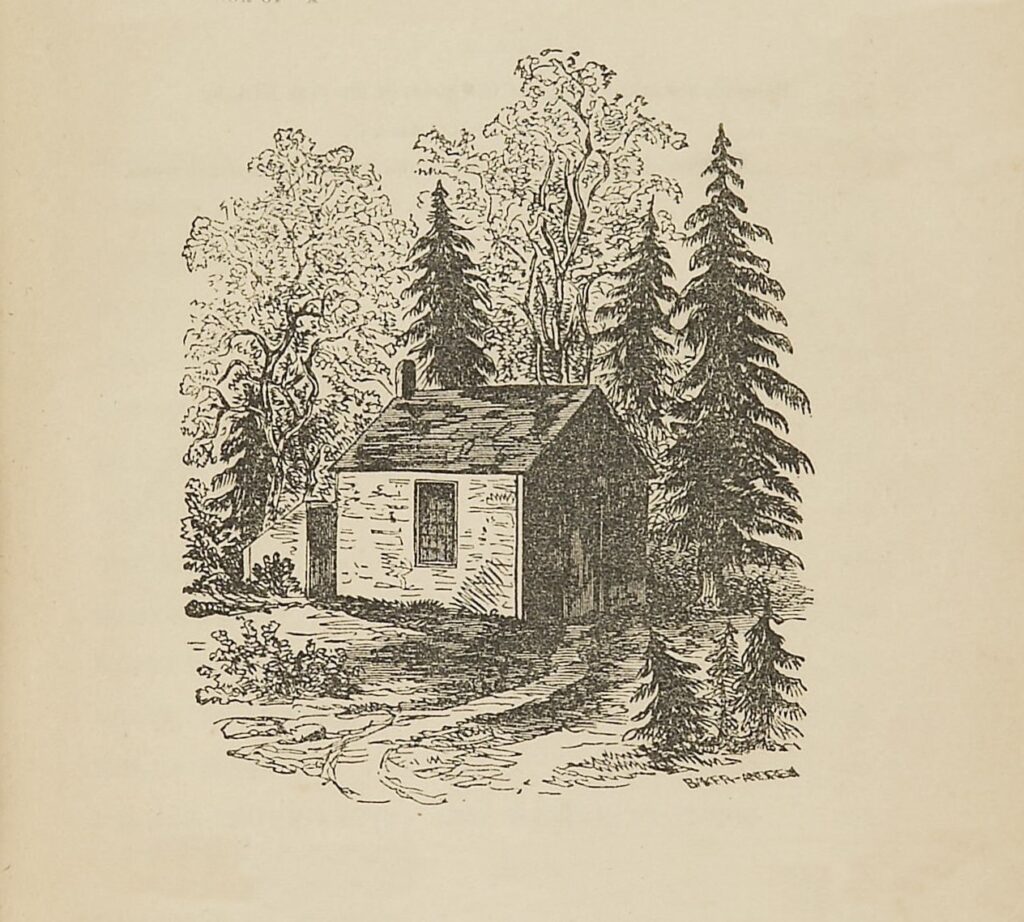Henry David Thoreau? Winston Churchill? Marshall McLuhan? Apocryphal?

Question for Quote Investigator: Automation has been occurring for centuries, but the modern age has taken the trend to new extremes. The culture of humanity has shifted dramatically because of the tools created by technology. Here are two versions of a pertinent adage:
(1) People have become the tools of their tools.
(2) Men have become the tools of their tools.
This saying has been credited to U.S. naturalist and essayist Henry David Thoreau. Also, I think media theorist Marshall McLuhan said something similar. Would you please help me to find a citation?
Reply from Quote Investigator: In 1854 Henry David Thoreau published “Walden” which included the following passage. Boldface added to excerpts by QI:1
But lo! men have become the tools of their tools. The man who independently plucked the fruits when he was hungry is become a farmer; and he who stood under a tree for shelter, a housekeeper. We now no longer camp as for a night, but have settled down on earth and forgotten heaven.
Thus, Thoreau was writing about agriculture and domiciles which were two early examples of the influence of technology on culture.
Below are additional selected citations in chronological order.
In 1877 “The Dublin University Magazine” in Ireland printed an article titled “Thoreau: Hermit and Thinker” which included sayings from Thoreau:2
Some of Thoreau’s brief pithy aphorisms are full of peculiar suggestiveness, and well worth accepting as proverbs for our own use. Here are a few of them:— …
“Beware of all enterprises that require new clothes, and not rather a new wearer of clothes.”
“In the long run men hit only what they aim at.”
“Men have become the tools of their tools.”
In 1942 journalist and pundit H. L. Mencken included the adage in his massive reference work “A New Dictionary of Quotations on Historical Principles from Ancient and Modern Sources”:3
Men have become the tools of their tools.
H. D. THOREAU: Walden, 1854
In 1943 U.K. Prime Minister Winston Churchill delivered a speech in the House of Commons, and he employed a thematically related statement:4
On the night of 10th May, 1941, with one of the last bombs of the last serious raid, our House of Commons was destroyed by the violence of the enemy, and we have now to consider whether we should build it up again, and how, and when. We shape our buildings and afterwards our buildings shape us.
In March 1967 “The Saturday Review” published an expository article titled “A Schoolman’s Guide to Marshall McLuhan” by John M. Culkin who was a friend and colleague of McLuhan’s. The presentation and interpretation of McLuhan’s thought was organized into sections. One section discussed the postulate “Life imitates art”, and the elaboration written by Culkin included a pertinent saying:5
Life imitates art. We shape our tools and thereafter they shape us. These extensions of our senses begin to interact with our senses. These media become a massage.
A separate Quote Investigator article about the saying immediately above is available here.
In 1990 “Sociology For People: Toward a Caring Profession” by Alfred McClung Lee printed an instance of Thoreau’s remark:6
They know how accurate Henry David Thoreau was when he asserted that people “have become the tools of their tools,” and they also comprehend that men and women are not satisfied with being just tools.
In 2000 “Random House Webster’s Wit & Humor Quotationary” contained dozens of sayings ascribed to Thoreau including the following three items:7
HENRY DAVID THOREAU (1817-1862). American philosopher
I have three chairs in my house: one for solitude, two for friendship, three for company.
It is enough if I please myself with writing; I am then sure of an audience.
Men have become the tools of their tools.
In conclusion, Henry David Thoreau deserves credit for the expression under analysis. It appeared in his famous 1854 book “Walden”. The tools referred humankind’s adoption of agriculture and home building.
Image Notes: Public domain cover illustration of the 1854 book “Walden” by Henry David Thoreau.
Acknowledgement: Great thanks to Chris Aldrich who saw the Quote Investigator article about the saying “We shape our tools, and thereafter our tools shape us”. Aldrich notified QI of the germane quotation examined in this new article. Aldrich pointed to its presence in “Walden”. This led QI to create this article and to update the existing article.
- 1854, Walden by Henry D. Thoreau, Chapter: Economy – Shelter, Quote Page 41 and 42, Ticknor and Fields, Boston, Massachusetts. (Internet Archive at archive.org) link ↩︎
- 1877 November, The Dublin University Magazine, Volume 90, Number 539, Thoreau: Hermit and Thinker, Start Page 610, Quote Page 621, W. Ridings, Dublin, Ireland. (Google Books Full View) link ↩︎
- 1942, A New Dictionary of Quotations on Historical Principles from Ancient and Modern Sources, Selected and Edited by H. L. Mencken (Henry Louis Mencken), Section: Machine, Quote Page 732, Alfred A. Knopf. New York. (Verified with hardcopy) ↩︎
- 1943 October 28, Hansard, United Kingdom Parliament, Commons, House of Commons Rebuilding, Speaking: The Prime Minister (Mr. Churchill), HC Deb 28, volume 393, cc403-73. (Accessed hansard.millbanksystems.com on June 25, 2016) link ↩︎
- 1967 March 18, The Saturday Review, A Schoolman’s Guide to Marshall McLuhan by John M. Culkin, (Director of the Center for Communications, Fordham University), Start Page 51, Quote Page 53 and 70, Saturday Review Associates, New York. (Unz) ↩︎
- 1990 (1988 Copyright), Sociology For People: Toward a Caring Profession by Alfred McClung Lee, Section: Introduction: On Human Concerns, Quote Page xviii, Syracuse University Press, Syracuse, New York. (Google Books Preview) ↩︎
- 2000, Random House Webster’s Wit & Humor Quotationary, Edited by Leonard Roy Frank, Person: Henry David Thoreau, Quote Page 254, Random House, New York. (Verified with scans) ↩︎